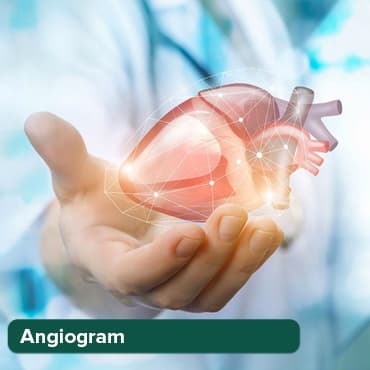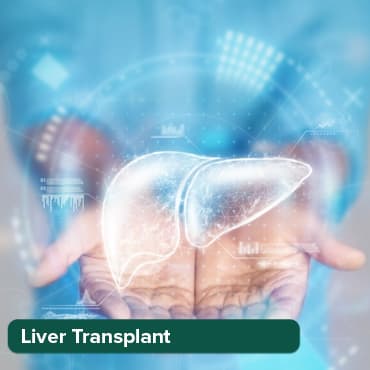
Menavigasi Kanser Hati dan rawatannya di India
23 Nov, 2023
 Pasukan Healthtrip
Pasukan HealthtripUbah Kecantikan Anda, Tingkatkan Keyakinan Anda
Cari kosmetik yang betul prosedur untuk keperluan anda.

Kami pakar dalam pelbagai jenis daripada prosedur kosmetik

Types of Liver Cancer
1. Hepatocellular Carcinoma (HCC):
Hepatocellular carcinoma is the most prevalent form of liver cancer, originating in the hepatocytes, the primary functional cells of the liver. Risk factors for HCC include chronic hepatitis B or C infection, cirrhosis, excessive alcohol consumption, and certain genetic disorders. Given its frequency, understanding the distinct characteristics and progression patterns of HCC is crucial for effective diagnosis and treatment.
2. Intrahepatic Cholangiocarcinoma (ICC):
Intrahepatic cholangiocarcinoma arises from the bile ducts within the liver. This type presents unique challenges due to its location and can be associated with conditions such as primary sclerosing cholangitis. ICC requires careful differentiation from HCC for accurate diagnosis and tailored treatment approaches.
3. Other Rare Types:
Liver cancer encompasses various rare types, such as fibrolamellar carcinoma and angiosarcoma. Though infrequent, these variants demand specialized attention due to their distinctive characteristics. Understanding the nuances of these rare types is crucial for comprehensive diagnostic assessments.
Causes and Risk Factors
Liver cancer is a complex disease influenced by various factors:
- Chronic Viral Infections: Chronic infections with hepatitis B or C significantly elevate the risk of developing liver cancer. Routine screening for viral hepatitis is vital for early detection and intervention.
- Cirrhosis: Cirrhosis, often resulting from prolonged liver damage, is a major precursor to liver cancer. Chronic alcohol abuse, non-alcoholic fatty liver disease (NAFLD), and certain genetic disorders can lead to cirrhosis.
- Environmental Toxins: Exposure to aflatoxins, a type of mold-produced toxin found in contaminated food, and other environmental toxins can contribute to the development of liver cancer.
- Metabolic Diseases: Conditions like hemochromatosis and alpha-1 antitrypsin deficiency increase susceptibility to liver cancer.
- Non-Alcoholic Fatty Liver Disease (NAFLD): The rising prevalence of NAFLD, often associated with obesity and metabolic syndrome, has become an additional risk factor for liver cancer.
Symptoms and Signs of Liver Cancer
Early stages of liver cancer may be asymptomatic, emphasizing the importance of routine screening for at-risk individuals. However, as the disease progresses, symptoms may include:
Prosedur paling popular dalam India
Kecacatan septum atr
Diskaun sehingga 80%.
90% Dinilai
Memuaskan

Angiogram Koronari d
Diskaun sehingga 80%.
90% Dinilai
Memuaskan

Angiogram Koronari C
Diskaun sehingga 80%.
90% Dinilai
Memuaskan

Pemindahan Hati
Diskaun sehingga 80%.
90% Dinilai
Memuaskan

Jumlah Penggantian P
Diskaun sehingga 80%.
90% Dinilai
Memuaskan

- Unexplained Weight Loss: Sudden and unexplained weight loss can be indicative of advanced liver cancer.
- Abdominal Pain and Swelling: Discomfort or pain in the upper abdomen, accompanied by swelling, may signal liver involvement.
- Jaundice: Yellowing of the skin and eyes (jaundice) is a common manifestation of liver dysfunction.
- Fatigue and Weakness: Generalized fatigue and weakness may be present due to the body's response to the cancer.
Stages of Liver Cancer
Staging is crucial in determining the extent of liver cancer and guiding treatment decisions:
- Stage 0 (Zero): The cancer is confined to a small area and has not spread beyond the liver.
- Stages I-III: Cancer has progressed, involving larger portions of the liver and potentially nearby structures.
- Stage IV: Advanced cancer that may have spread to distant organs, making treatment more challenging.
Understanding the specific stage of liver cancer aids healthcare professionals in tailoring treatment plans to the individual needs of the patient.
Diagnosing Liver Cancer in India
A. Screening and Early Detection
In India, as in many parts of the world, the emphasis on screening and early detection has become pivotal in the battle against liver cancer. Given the often asymptomatic nature of the disease in its early stages, targeted screening programs have been initiated to identify individuals at high risk. Common high-risk groups include those with chronic hepatitis B or C infections, individuals with cirrhosis, and those with a family history of liver cancer.
Early detection not only facilitates timely intervention but also significantly improves the chances of successful treatment. Various health campaigns and awareness programs in India encourage at-risk individuals to undergo regular screenings, fostering a proactive approach to liver health.
B. Diagnostic Procedures
1. Imaging Tests (CT Scans, MRI, Ultrasound):
State-of-the-art imaging technologies play a pivotal role in the diagnosis of liver cancer in India. Computed Tomography (CT) scans, Magnetic Resonance Imaging (MRI), and ultrasound are employed to visualize the liver and identify any abnormalities. These non-invasive techniques help determine the size, location, and characteristics of potential tumors. Indian healthcare facilities, equipped with advanced imaging technology, ensure precise and accurate diagnostic imaging.
2. Biopsy:
When imaging suggests the presence of liver abnormalities, a biopsy may be recommended to confirm the diagnosis. A liver biopsy involves the extraction of a small tissue sample for microscopic examination. In India, specialized liver biopsy procedures are conducted by experienced hepatologists, ensuring accuracy in identifying cancerous cells and guiding subsequent treatment decisions.
3. Blood Tests:
Blood tests, including alpha-fetoprotein (AFP) levels and liver function tests, are integral components of the diagnostic process. Elevated AFP levels can indicate the presence of liver cancer, prompting further investigation. Additionally, liver function tests provide valuable insights into the overall health of the liver. In India, these blood tests are routinely conducted, contributing to the comprehensive evaluation of liver health.
C. Importance of Accurate Diagnosis for Effective Treatment Planning
Accurate diagnosis is the linchpin for formulating effective and tailored treatment plans for liver cancer patients in India. The diverse nature of liver cancer, including different types and varying stages, necessitates precision in identification. A precise diagnosis enables oncologists, surgeons, and other specialists to determine the most appropriate treatment modalities, whether surgical interventions, locoregional therapies, or systemic treatments.
In the context of India's evolving role in liver cancer treatment, accurate diagnosis becomes the cornerstone for navigating the complexities of the disease. The collaborative efforts of healthcare professionals in India, combined with cutting-edge diagnostic tools, ensure that each patient receives a thorough and precise diagnosis, setting the stage for a comprehensive and effective treatment journey.
Treatment Options of Liver Cancer
A. Surgery:
1. Hepatectomy: Hepatectomy is a surgical procedure aimed at removing a portion of the liver affected by cancer. The extent of liver tissue removal depends on the size and location of the tumor. It is crucial for preserving sufficient liver function post-surgery. Hepatectomy is considered for patients with localized tumors and sufficient liver function for the remaining organ to compensate. Advances in surgical techniques, such as laparoscopic or robotic-assisted hepatectomy, contribute to reduced recovery times and improved outcomes.
2. Liver Transplant: Liver transplantation involves replacing the entire liver with a healthy one from a deceased or living donor. This option is reserved for specific cases, typically when the tumor is limited to the liver and the patient meets strict criteria. Successful liver transplants offer a chance for a cure, but the scarcity of donor organs and stringent eligibility requirements limit its applicability. Immunosuppressive medications are necessary post-transplant to prevent rejection.
3. Expertise of Renowned Surgeons in Indian Hospitals: Indian hospitals have gained recognition for their skilled surgeons specializing in liver cancer treatment. These experts often utilize the latest surgical techniques, including minimally invasive approaches, and collaborate with international counterparts to ensure the highest standards of care.
B. Locoregional Therapies:
1. Radiofrequency Ablation (RFA): RFA involves the insertion of a specialized probe into the tumor, emitting radiofrequency waves that generate heat and destroy cancer cells. It is particularly effective for small liver tumors and is considered less invasive than surgery. RFA is associated with a shorter hospital stay, quicker recovery, and a lower risk of complications compared to traditional surgical interventions.
2. Transarterial Chemoembolization (TACE): TACE is a combination therapy that involves injecting chemotherapy drugs directly into the blood vessels supplying the tumor. This is often combined with the embolization of these vessels, reducing blood flow to the tumor. TACE is employed when surgery or systemic therapy is not suitable, providing a localized treatment option.
C. Systemic Therapies:
1. Chemotherapy: Chemotherapy for liver cancer typically involves the administration of systemic drugs that circulate throughout the body to target and kill rapidly dividing cancer cells. While not always as effective as in some other cancers, chemotherapy may be used, especially in advanced cases or when other treatment options are limited.
2. Targeted Therapy: Targeted therapies focus on specific molecules involved in cancer growth. In liver cancer, these may include drugs that target specific receptors or pathways responsible for tumor development. Targeted therapies aim to be more precise and have fewer side effects compared to traditional chemotherapy.
3. Immunotherapy: Immunotherapy harnesses the body's immune system to identify and attack cancer cells. Checkpoint inhibitors, for example, aim to remove the "brakes" on the immune system, allowing it to recognize and target cancer cells. Immunotherapy is showing promise in the treatment of liver cancer, particularly in cases where other therapies may be less effective.
E. Palliative Care Options:
- Pain Management: Palliative care includes pain management strategies to alleviate discomfort associated with liver cancer. This may involve medications, nerve blocks, or other interventions to enhance the patient's overall quality of life.
- Emotional and Psychological Support: Dealing with a diagnosis of liver cancer can be emotionally challenging. Palliative care teams incorporate psychological and emotional support services to help patients and their families cope with the impact of the disease. This includes counseling, support groups, and resources to address the emotional aspects of living with cancer.
Leading hospitals and doctors for Liver Cancer Treatment in India
In India, a cadre of cutting-edge medical centers stands as beacons of excellence in liver cancer treatment. Renowned for their advanced technologies and multidisciplinary expertise, these institutions symbolize the country's commitment to providing top-tier care for patients facing liver cancer.
India's liver cancer treatment landscape reflects progress through early detection, advanced therapies, and collaborative medical centers. With ongoing research and a focus on personalized treatments, there's hope for improved patient outcomes. Encouraging proactive healthcare, including regular screenings and healthy living, is key in shaping a promising future for liver cancer care in India.
Rawatan Kesihatan
Beri diri anda masa untuk berehat
Harga Terendah Dijamin!

Harga Terendah Dijamin!




